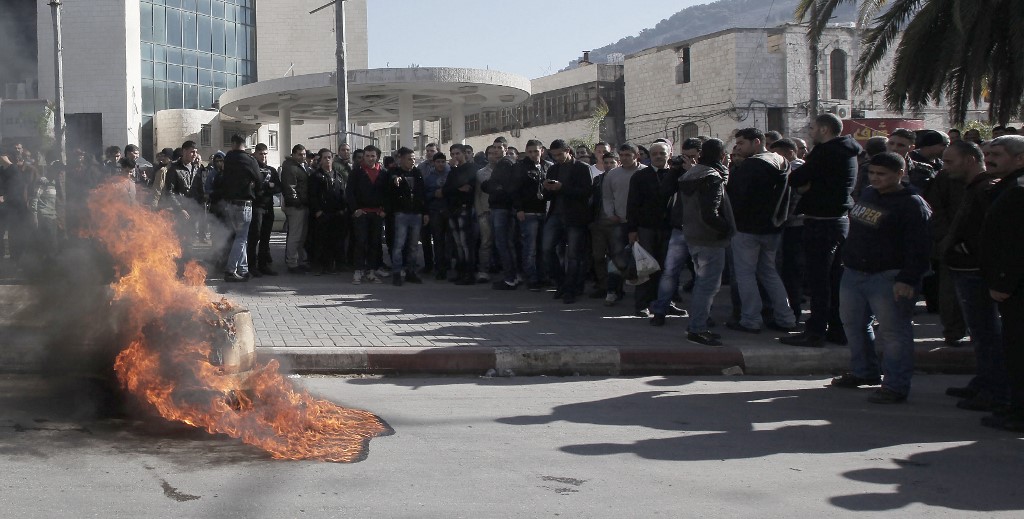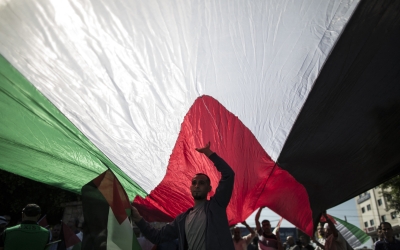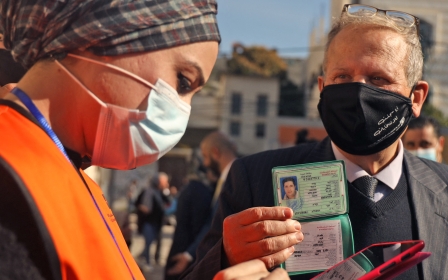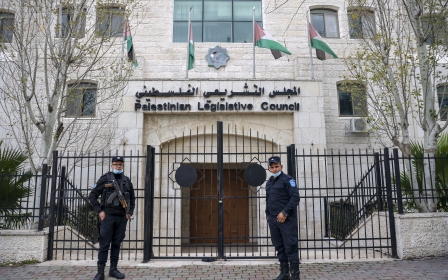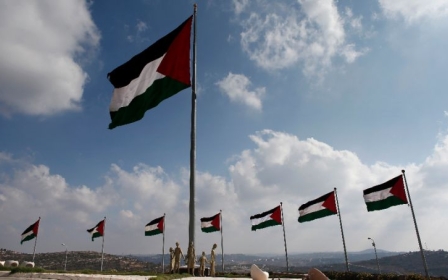Palestinian elections: The resurrection of Salam Fayyad
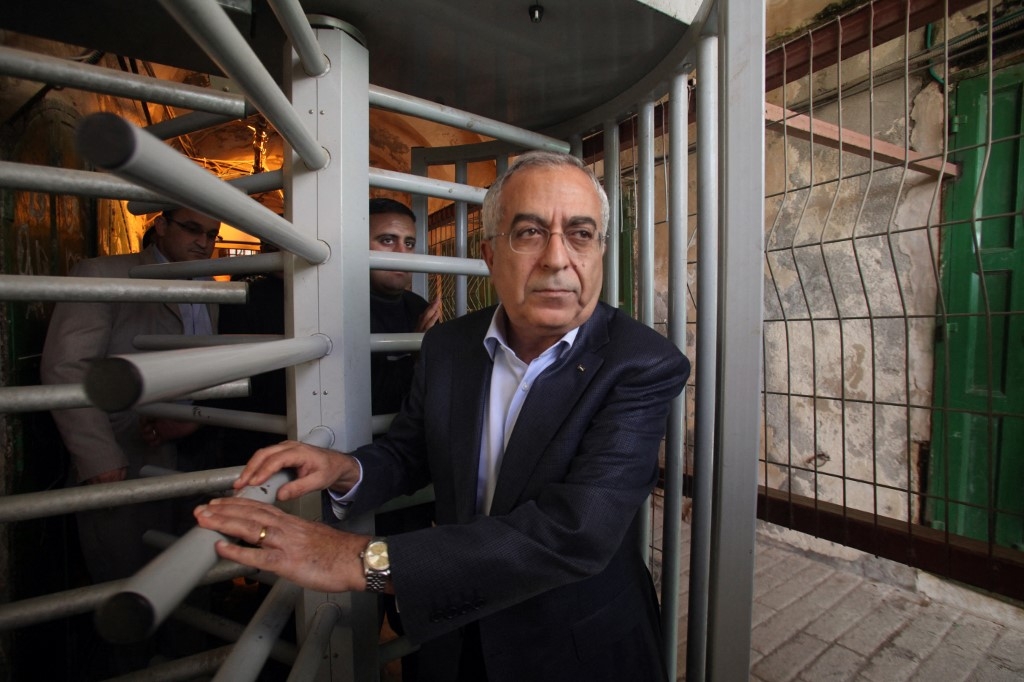
Much jockeying for position is unfolding within the leadership of the Fatah movement in preparation for May’s planned Palestinian Authority (PA) elections. This is not a rivalry among right-wing conservatives, middle-of-the-road liberals and radical socialists, but rather a battle among different pro-Oslo, neoliberal, right-wing factions and personalities.
The current leadership of Fatah and the PA is taking no chances, having issued a veiled threat to Marwan Barghouti, languishing in an Israeli prison since 2002 but still active in the movement from his cell. And a few days ago, Fatah expelled former leader Yasser Arafat’s nephew, Nasser al-Qudwa, from the movement over his electoral challenge to President Mahmoud Abbas.
But those intent on saving the PA from Abbas, whether through internal Fatah rivals or through “independent” technocratic personalities, are not to be outdone; they have just unleashed their latest electoral candidate, former PA Prime Minister Salam Fayyad, who recently announced in an interview with the Palestinian newspaper al-Quds that he is returning to the Israeli-occupied West Bank to run for elections as an independent.
National unity government
Fayyad declared that the parliamentary bloc he intends to form would consist of “independent personalities” and that they would conduct their campaign with “transparency and honour”. He added that the elections should establish a government of national unity that includes everyone, “and not a majority government”. Still, he expressed concerns about the achievement of such unity through elections, given the divisions among Palestinian factions, especially Fatah and Hamas, and the crackdown by the ruling Fatah-PA on freedom of expression.
New MEE newsletter: Jerusalem Dispatch
Sign up to get the latest insights and analysis on Israel-Palestine, alongside Turkey Unpacked and other MEE newsletters
Fayyad, who served as PA prime minister after the Fatah coup against Hamas in 2007 until 2013, is currently a visiting scholar at Princeton University. He departed from the Palestinian scene after dabbling in an NGO whose funds were sequestered in 2015 by a PA court, which accused the organisation of using its funds for political, not philanthropic, aims - a charge Fayyad denied.
Some in the corridors of Israeli, Arab and western power seem to be doing everything they can to end all forms of Palestinian resistance once and for all
Fayyad’s curriculum vitae includes working for the International Monetary Fund from 1987 to 2001, where the latter half of his tenure included serving as resident representative in the West Bank and Gaza Strip. In 2002, he became the PA’s finance minister.
While serving as prime minister in 2009, Fayyad - dubbed by Israel’s late President Shimon Peres as “the Palestinians’ first Ben-Gurionist”- predicted that a Palestinian state would be established by 2011. More than a decade since his unfulfilled prediction, he seems to have reneged on his own hope and, if his recent declarations are to be believed, changed course radically.
During his long stint as prime minister, he recognised Israel as a “biblical country”, noting: “Related to the Zionist ethos, fine, Israel is a biblical country, there are lots of hilltops, lots of vacant space, why don’t [the settlers] use that, and let us get on with it?” But in his recent interview, he insisted that Palestinians should now claim their national rights in all of “historic Palestine”.
Repressing Palestinians
When in office, Fayyad presided over the repression of all forms of Palestinian resistance to Israel, dubbed “incitement”, including freedom of speech and freedom of political action.
While US-trained PA security forces were repressing Palestinians, Fayyad assured Israeli readers in an interview with Haaretz: “Incitement can take the form of many things - things said, things done, provocations - but there are ways for dealing with this. We are dealing with this.”
Yet, not only did Fayyad pose as a democrat who was above partisan politics and the conflict between Fatah and Hamas, he insisted at the same time that he applied the PA security apparatus, trained with the oversight of US Lieutenant General Keith Dayton, to repress only those who violated the law on either side.
In an interview published by the Washington-based Journal of Palestine Studies (JPS), he insisted that he opposed human rights violations, torture and politically motivated arrests, despite a massive record of ongoing abuses on all these fronts by his security forces, which at the time targeted especially anyone associated with Hamas.
Fayyad also blithely surrendered the Palestinian people’s right of return to their homes and lands from which they had been expelled in 1948 by European Jewish colonists, saying: “Of course, Palestinians would have the right to reside within the state of Palestine” to be established in parts of the West Bank and Gaza.
He was also quite flexible on the city of Jerusalem. In the 2009 original Arabic version of his JPS interview published in the Beirut-based Majallat al-Dirasat al-Filastiniyya, Fayyad was so concerned about the ongoing Israeli colonial theft of Jerusalem that he soberly recommended full Arab normalisation with Israel to put a stop to it: “The Arab identity of the city will be strengthened when the Arabs come to visit it, not when they boycott it under the pretext that visiting it would be normalisation with the occupier. I believe that it is the duty of Arabs to visit Jerusalem and I encourage this strongly, for in doing so, they would be supporting and strengthening the Arab dimension of Jerusalem’s identity.”
In contrast to his previous declarations, the new, radical Fayyad appears adamant that Jerusalem be claimed by Palestinians, saying it would be a test for the Biden administration, about which he is less than sanguine, to reverse the Trump administration’s policies.
Reform coalition
In a break from his past Israel-friendly positions, in his recent interview, Fayyad called to abandon the two-state solution and surprisingly insisted on the right of Palestinians to all of “historic Palestine”, which should be pressed internationally as a unified Palestinian position.
The new, radical Fayyad even insisted that Fatah adopt the line that Hamas and Islamic Jihad have always expressed - namely, that elections be held not under the rubric of the Oslo Accords, as the recently resurrected Quartet (the US, UN, EU and Russia) insists, but rather on the basis of rejecting Oslo altogether. He demanded that Palestinians in occupied East Jerusalem participate in the vote, as they were able to do in previous PA elections.
When asked by al-Quds about rumours that he may be running in the elections based on an initiative of the UAE government, which recently normalised relations with Israel, Fayyad denied the rumours categorically.
Palestinian pollster Khalil Shikaki, a senior fellow at Brandeis University’s Crown Center for Middle East Studies, said that “if Fayyad is No 2 on a list created by Marwan Barghouti and led by Nasser al-Qudwa, or part of a larger reform coalition, their chances of taking votes from Fatah would significantly increase. Along with a unified leftist electoral list, such a reform coalition could influence the makeup of the next Palestinian governmental coalition.”
This suggests that Fayyad’s claimed political independence may have to be dependent on, or complicit with, the anti-Abbas Fatah faction to achieve electoral victory. A whole slew of pro-Oslo and pro-western Palestinian intellectuals, both inside and outside Palestine, have expressed excitement about Fayyad’s auspicious return to Palestinian politics.
Intriguing implications
This is not Fayyad’s first time at the circus. He had a dry run back in 2006, when he ran on the “Third Way” list that he co-founded with Palestinian politician Hanan Ashrawi, which was also “independent” of the other Palestinian factions. At the time, Fatah accused the Third Way of being financed by the CIA, which they denied. When the elections were held, the Third Way received a whopping 2.4 percent of the vote. It is not clear what percentage of the vote Fayyad hopes to get in the upcoming May elections.
The resurrection of Fayyad from political retirement is indeed a most intriguing event. Some in the corridors of Israeli, Arab and western power seem to be doing everything they can to revamp PA rule and collaboration with Israel, and with it the machinations of the Israeli occupation itself, to end all forms of Palestinian resistance once and for all, with a Biden-lite version of Trump’s “deal of the century”.
The PA elections are the game in which this imperial and Israeli strategy, and that of competing PA and Fatah collaborators clamouring for power, is being played out.
The views expressed in this article belong to the author and do not necessarily reflect the editorial policy of Middle East Eye.
This article is available in French on Middle East Eye French edition.
Middle East Eye delivers independent and unrivalled coverage and analysis of the Middle East, North Africa and beyond. To learn more about republishing this content and the associated fees, please fill out this form. More about MEE can be found here.



